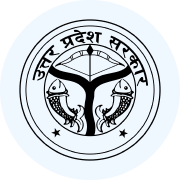Super TET Exam > Super TET Videos > Environment & Social Studies for Super TET > Emergency (Part -1) - Indian Polity
Emergency (Part -1) - Indian Polity Video Lecture | Environment & Social Studies for Super TET
FAQs on Emergency (Part -1) - Indian Polity Video Lecture - Environment & Social Studies for Super TET
| 1. What was the Emergency in Indian Polity? |  |
Ans. The Emergency in Indian Polity refers to a period from 1975 to 1977 when the then Prime Minister, Indira Gandhi, declared a state of emergency in the country, leading to the suspension of several fundamental rights and the suppression of political opposition.
| 2. What were the reasons behind the declaration of Emergency in Indian Polity? |  |
Ans. The declaration of Emergency in Indian Polity was primarily triggered by political unrest and opposition to the government's policies, including the controversial Allahabad High Court verdict that found Indira Gandhi guilty of electoral malpractices. The government claimed that it was necessary to maintain law and order and ensure stability in the country.
| 3. How did the declaration of Emergency impact Indian Polity? |  |
Ans. The declaration of Emergency had a significant impact on Indian Polity. It led to the curtailment of civil liberties, media censorship, and the arrest of political leaders and activists. The government assumed extensive powers, and democratic institutions were weakened. The period is often criticized for its authoritarian nature and the violation of citizens' rights.
| 4. How did the Indian Polity recover from the Emergency? |  |
Ans. The Indian Polity gradually recovered from the Emergency as public resentment against the authoritarian regime grew. The opposition parties united under the banner of the Janata Party and fought the 1977 general elections with a promise to end the Emergency. They emerged victorious, and Morarji Desai became the Prime Minister, leading to the restoration of democracy and civil liberties in the country.
| 5. What were the long-term effects of the Emergency on Indian Polity? |  |
Ans. The Emergency left a lasting impact on Indian Polity. It served as a reminder of the importance of preserving democratic values and the need for checks and balances on power. The event led to constitutional amendments and judicial decisions aimed at safeguarding fundamental rights and preventing the misuse of emergency powers. It also contributed to a more vigilant civil society and media, ensuring that similar authoritarian measures are not repeated in the future.
Related Searches
















